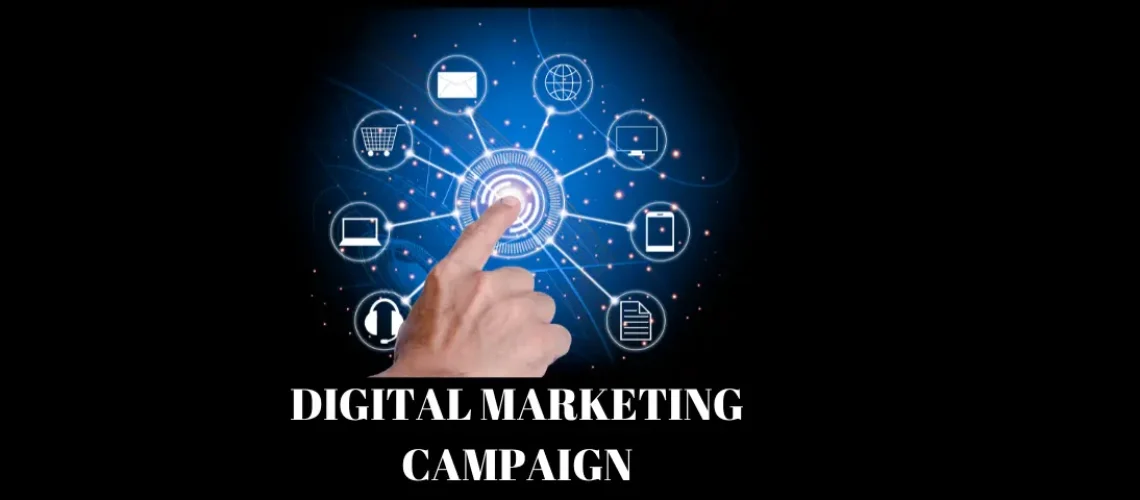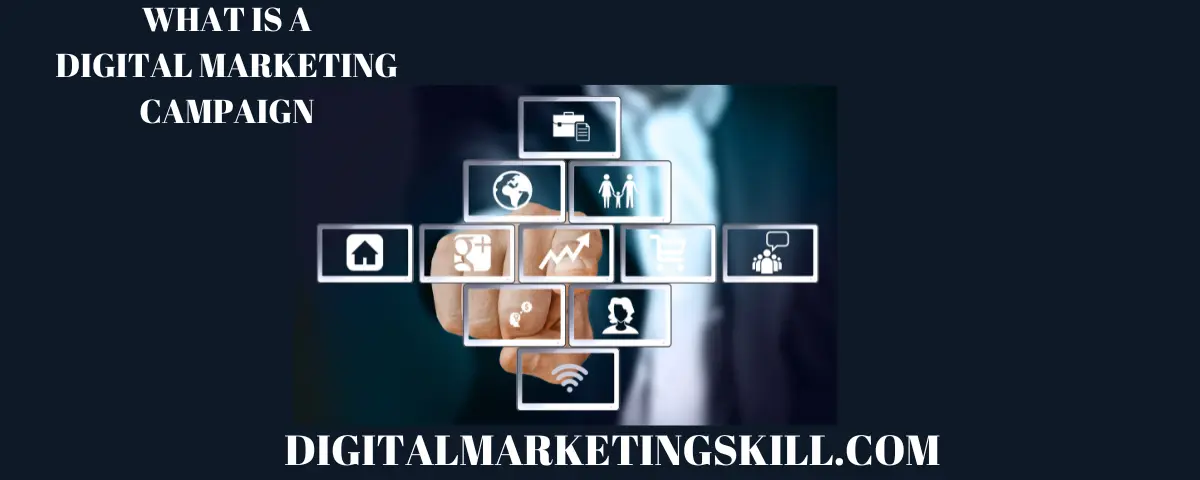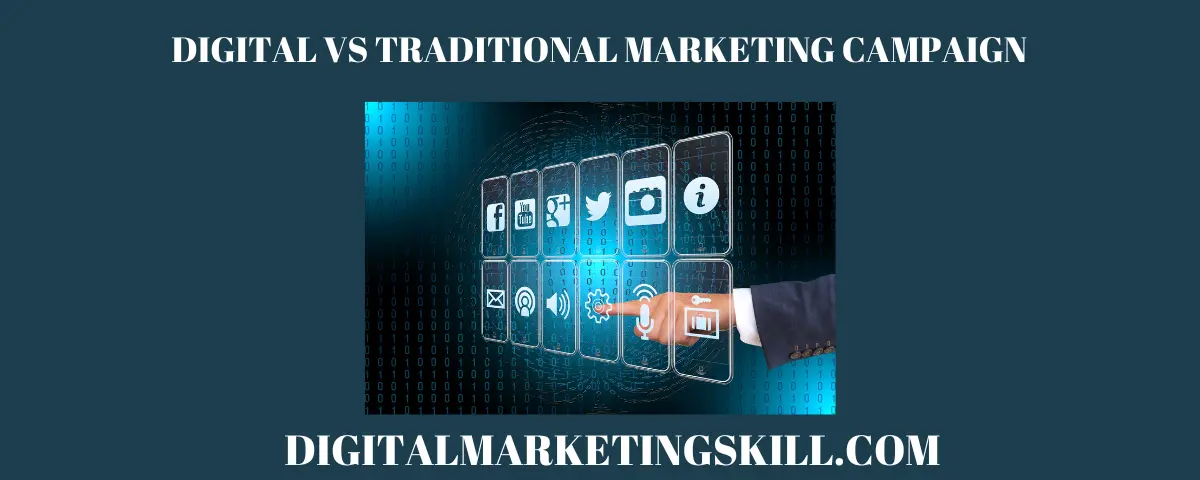Digital marketing campaigns have proven themselves to be the cornerstone of modern marketing. In today’s world, businesses are constantly seeking innovative ways to capture the attention of their target audiences and drive meaningful engagement. Marketing campaigns have become a powerful strategy that businesses can use to take advantage of the different channels to reach their audience and a create personalised experience. This campaign will help you increase your reach among target audiences and increase brand awareness.
Today we will be looking into everything you need to know about digital marketing campaigns, including the ones that have been successful and caught the attention of the public.
What is a Digital Marketing Campaign?
A digital marketing campaign includes activities carried out to reach specific marketing goals that may include lead generation, increased website traffic, and boosting sales. They are also coordinated efforts that are designed to promote a product, service, or brand to a particular audience through various digital marketing channels.
A campaign usually involves understanding the audience, creating a plan, and then executing the plan. Digital marketing campaigns can include components like social media marketing, search engine optimization (SEO), pay-per-click (PPC) advertising, email marketing, content marketing, and influencer marketing to achieve your goals.
Digital marketing campaigns that focus on a strategic approach not only yield impressive returns on investment but also offer more than just financial gains. It serves as a continuous source of value creation, providing lasting advantages and opportunities for engagement. We explain how to create a campaign properly in our digital marketing course.
What makes a good Digital Marketing Campaign?
Get 50% Discount to Master ALL Aspects of Digital Marketing That Can Earn You $2,500 - $5,000 a month (Even if you are a complete beginner!)
Our students that intentionally implement what they learn from our digital marketing course make back the entire course fee within a single month or more after completing our course because our course gives them many income generating options with unlimited earning potential with no age or location barrier. The best part is no technical skills are required.
An opportunity to change your lifestyle and make money working from anywhere in the world. The results our students get from our digital marketing course prove this could be applied to any market or country and that it is designed for any skill level and work background.
*By signing up, you agree to our privacy policy and terms of service.
What makes a good digital marketing campaign is a well-thought-out strategy that effectively reaches and engages the target audience. A successful campaign requires clear objectives, a deep understanding of the target audience, creative content, and active customer interaction.
By defining campaign goals, collecting data on audience demographics and preferences, incorporating engaging content like videos and blogs, and responding promptly to customer queries, businesses can create a digital marketing campaign that resonates with their audience and drives desired outcomes.
Continuously monitoring and optimizing the campaign based on performance data ensures its success and helps build lasting relationships with customers.
Benefits of Digital Marketing Campaigns
Increased visibility
Digital marketing campaigns make your company more visible online, which makes it simpler for prospective clients to find you. Using social media marketing and search engine optimization (SEO), you can increase the ranking of your website on search engine results pages (SERPs) and reach a wider audience, thereby generating more leads and even increasing conversion.
Cost-effectiveness
Compared to traditional marketing channels, digital marketing is frequently more economical. Without spending a fortune, your campaigns can reach thousands of potential consumers with pay-per-click (PPC) advertising and email marketing. This process is simple and allows you to properly allocate your budget for the best possible outcomes based on the analysis carried out.
Promotes engagement
Digital marketing campaigns boost engagement by giving companies more ways to communicate with their target audience. Social media platforms, for instance, give organizations the chance to provide interesting content that elicits likes, shares, comments, videos, and polls. Also, email marketing enables companies to send targeted messages straight to the inboxes of their subscribers, encouraging them to act or reply.
Specific audience reach
When you use modern targeting tools found on digital platforms, digital marketing campaigns can result in tailored reach. With the aid of these tools, companies can accurately describe the demographics, interests, and online habits of their target market. This improves the impact of your marketing efforts by ensuring that resources are used efficiently and that the appropriate message reaches the right people at the right time.
Measurable results
Measuring and monitoring several metrics like website traffic, conversion rates, return on investment (ROI) can be done using several analytics tools that help you monitor the performance of your campaigns. With these tools, marketers may identify the impact of their campaigns, alter their marketing plans, and identify the strategies that work best for them by evaluating the data gathered from the digital marketing campaign.
How to create a successful digital marketing campaign
Determine the marketing goals
Before any campaign is done, the goals are set. Marketing goals help in measuring the performance of the campaign to see if it is successful or if it needs to be reviewed. When setting goals, it is important to set SMART (specific, measurable, attainable, realistic, and timely) goals.
An example of a goal could be increasing traffic to the company by 20% in one month or increasing conversions by 10% monthly. Goals are outlined, so it is easier to track and measure their performance at the end of the set period.
Identify your target audience
Identifying your target audience is a crucial strategy for running a successful digital marketing campaign. By understanding the specific group of consumers that your products and services are aimed at, you can tailor your marketing efforts to effectively reach and engage with them It involves finding out information that includes some of the following:
- Gender
- Age
- Income
- Type of job
- Goals
- Their problems and pain points
- Objections during the sales process
- Solution
With this information gathered, you now have a description of who your ideal customer is and where and how you can reach them. Sites like Hubspot provide templates you can use when creating a customer persona.
Keyword research
This step is very important. After you’ve set goals, and decided on who your target audience is, the next step is to do keyword research to identify what your target audience searches for. You can carry out this research using keyword tools like Semrush, Google AdWords, Ahrefs, Answerthepublic, Google Trends, and Ubersuggest.
We advise choosing keywords with high search volume and low competition, as they are easier to rank on SERPs, especially for small businesses. Another way to look for keywords is to go through the “people also ask” section on Google search results as this will give you more ideas about what your target audience is searching for.
Conduct a competitor analysis
Find out what your competitors are up to by going through their campaigns and content displayed on the search engine result pages and even social media platforms. You can also use tools like Semrush and Ubersuggest to perform this analysis. The reason for doing this is to understand their strategy, find out how they do things, and then find ways to make yours better.
Some of the things to look out for when doing competitor analysis include:
- How they approach content
- Which products do they advertise?
- What kind of advertisements do they run? What message do they convey?
By analysing your competitors, you will have access to how things are done and it can help you have a good campaign strategy.
Choose the right channel
Selecting the appropriate channels is essential since it dictates where and how you may effectively reach your audience. Every channel, including social media, email, and search engines, has unique features and target demographics of its own.
Understanding the behaviours and interests of your target audience can help you choose the ideal channels. For example, it might be advantageous to concentrate your efforts on Instagram if your audience is a heavy user of the platform.
Think about your goals as well. For example, pay-per-click (PPC) advertising helps bring immediate traffic to your site and search engine optimization (SEO) may be an appropriate channel if your goal is to increase website traffic and rank higher in search engines.
Campaign budget
Having a budget helps organizations and businesses allocate resources effectively so they can meet their marketing goals. Before any campaign is done, a budget should be set up as it allows you to determine how much a company is ready to spend for the campaigns.
Companies should assess their financial standing and decide on a reasonable amount for their marketing campaigns. Knowing your budget for a campaign will help you make the right decision, including the price of advertising, the cost of creating content, and other marketing tools.
Decide on a content strategy
Content strategy involves planning what content to produce, when to publish it, and where to share it. To keep your audience interested, offer relevant and valuable information frequently.
Your goal will be directly tied to your content strategy as well. For instance, if your goal is to increase engagement, you might want to provide relevant and interesting articles to your audience. Over time, your content strategy will change as you get to know more about your audience through analysis and feedback.
A carefully thought-out content strategy makes sure that your digital marketing campaigns connect with your target market and produce significant results for your company
Start the campaign
You can now launch your campaign. You’ve gone through the processes of setting a goal, finding your target audience, setting a budget, conducting keyword research, analyzing competitors, building a content strategy, and choosing the appropriate channel through which your campaign will be launched.
Your campaign can now go live. Ensure to do some test runs before you dive into it completely, as this can also help curb errors and avoid budget mismanagement.
Monitoring and analysis
In digital marketing, tracking and evaluating campaigns is crucial to understanding what is working and the choices to make to improve outcomes. However, before analyzing your data, refer back to the campaign goals. It helps you focus on the key performance indicators (KPIs) that matter for the campaigns.
If you still don’t know how to create good marketing campaigns, why not attend our next digital marketing training to learn about marketing and the different types of marketing campaigns you can do for your business?
10 Types of Digital Marketing Campaigns
1. SEO Campaigns
SEO campaigns improve website visibility by helping it rank higher on search engine results pages and pull organic traffic. This is done by keyword research, adding quality backlinks, and crafting compelling content.
2. PPC advertising campaigns
From the name pay-per-click, you can tell that the marketers are charged a fee each time a user clicks on the ads. The ads are usually displayed at the top of the search engine results pages.
3. Social Media Marketing campaigns
Social media marketing campaigns are displayed on social media platforms like X, WhatsApp, Instagram, Facebook, LinkedIn, and Pinterest. These posts may be organic, sponsored ads, or influencer-paid partnerships. These platforms are used to promote a product or service.
4. Content Marketing Campaigns
These types of campaigns solely focus on creating quality, relevant, and engaging content to attract a large target audience. Content can include block posts, podcasts, and videos. The main goal is to show the audience that you are an expert in that field and allow for engagement.
5. Product Marketing Campaign
Is a marketing strategy that includes introducing a new or current product to the market and generating demand. Strategically positioning and messaging the target market is essential to increasing revenue. It involves creating compelling messages and marketing materials that showcase the attributes, advantages, and value proposition of the product. The campaign’s objectives are to raise interest in the product, increase sales, and strengthen brand recognition.
6. Email Marketing Campaigns
Email marketing campaigns involve sending emails to the target audience to either promote a product, announce a sale, or share updates or information. It is also an effective way to nurture leads and keep in touch with prospect by provide information regarding your brand and many activities the company is into.
7) Affiliate Marketing Campaigns
An affiliate marketing campaign involves partnering with a third party to promote a product or service. The third party usually has a percentage of all the sales made. This percentage is called commission. It’s an effective way to reach new customers, and it is very cost-effective.
8) Campaign for Brand Development
Is a long-term plan that informs a target audience about a company’s mission. Maximizing exposure, increasing engagement, and gaining loyalty are the ultimate goals. The main goal of a brand development marketing campaign is to establish and enhance a company’s reputation and identity among consumers. It entails creating a unique brand narrative, establishing brand values, and conveying them reliably through various types of mediums.
9) Influencer Marketing Campaigns
In these campaigns, marketers established paid partnerships with influencers to promote a product or service to a specific audience. The marketers here leverage the credibility of the influencer to increase brand awareness and drive sales.
10) Remarketing Campaigns
The sole purpose of this campaign is to target customers who may have interacted with the brand in some way, maybe through their content but took no action. These retargeting campaigns will be tailored to remind the individual about the brand product or service.
If you want to learn how to create a digital marketing campaign for your business then, click here to learn how we can help you achieve that.
Examples of Digital Marketing Campaigns
1. Dove’s “Show Us” Digital marketing campaign
Dove challenged beauty stereotypes by celebrating the diverse representations of beauty. They encouraged women to be more confident and embrace their natural skin. Do realize that not many women are being portrayed in the media and advertisements, and also hope to change that. In creating content of over 5,000 images, Dove was able to promote positive body image and self-esteem among women.
2. Coca-Cola “Share a Coke” Digital marketing campaign
This was one of the best campaigns Coca-Cola ever had. It was created so people could share a Coke with their friends and family. This allowed individuals to form a connection with the brand. The campaign was also expanded when Coca-Cola decided to add personalized messages to the bottles and cans. Campaigns exerted a lot of force on social media as people shared images of Coca-Cola bottles that had their names on it. The campaign should show how a small change in a product can have a big impact on consumer engagement and sales.
3. Apple’s “work from home” Digital marketing campaign
During the 2020 pandemic, there were a lot of setbacks, especially in offices, as workers couldn’t visibly go to work again, and this gave rise to a new reality of working from home. Apple capitalized on this by showing the difficulties that could be encountered if one chooses to work from home and how their devices, which include Macbooks, iPads, and iPhones, could simplify this task. Features like FaceTime, IWalk, and iCloud were some of the features they offered to the public. FaceTime for virtual meetings and iCloud, and I work on sharing company files.
Digital Marketing Campaign vs Traditional Marketing Campaign
Businesses use online platforms like social media, email, and search engines to connect with their target audience through digital marketing campaigns. They are able to immediately modify strategy, track performance in real-time, and target particular demographics.
Traditional marketing campaigns, on the other hand, rely on offline strategies like print, TV, and radio advertisements. Though less focused and more difficult to quantify and measure, they frequently have a wider audience.
While traditional advertising can be more expensive, digital efforts are more affordable, enabling small firms to compete with larger ones. Traditional marketing gives a wider audience and physical products, whereas digital marketing offers more flexibility, targeting, and measurability.
Conclusion
Digital marketing campaigns help to foster personal relationships. It makes the customer the main focus, listening to them commit their feedback and finding ways to create lasting impressions on them. It is a comprehensive approach to promoting products and services online.
Digital marketing strategies offer numerous advantages, such as improved engagement, measurable outcomes, brand development, worldwide reach, and flexibility. In today’s digital age, businesses may use the internet to interact with customers, and create relationships. This helps to accomplish their marketing goals by carefully designing and implementing digital marketing campaigns.
To become a marketing expert, all you need to do is acquire and hone relevant digital marketing skills by enrolling in some or all of the courses listed below.
Faqs
What makes a good digital campaign?
A good digital campaign is one that effectively reaches and engages the target audience, achieves the desired marketing objectives, and delivers a strong return on investment (ROI). It should be well-planned, executed, and optimized based on performance data. The campaign should also be flexible and adaptable to changes in the market and consumer behavior.
How long should a digital campaign be?
The duration of a digital campaign depends on the marketing objectives, target audience, and resources available. Some campaigns may run for a short period to capitalize on a specific event or trend. While others may run for a longer duration to build brand awareness and generate leads. It’s essential to monitor the campaign’s performance and adjust the strategy as needed
More Resources
Effective Digital Marketing Approach | 5-Step Digital Marketing Strategy
12 Ways Digital Marketing Can Help Boost Your Business
Digital marketing tools in Nigeria: 15 digital marketing tools you need for your business growth







